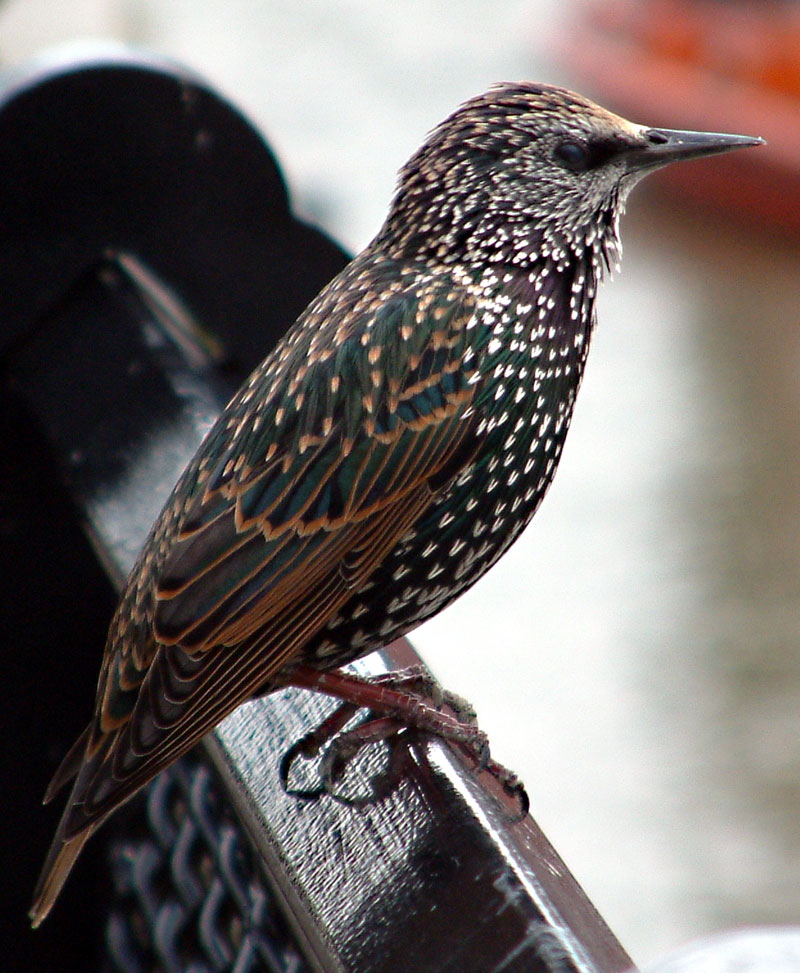Scientists have found that birds exposed to oestrogens in the environment sing better but have weaker immune systems.
Katherine Buchanan and her colleagues at Cardiff University treated groups  of male wild-caught starlings with doses of oestrogens and oestrogen-like chemicals similar to levels some birds are currently picking up in the wild by scavenging near sewage treatment facilities. The team found that compared with control animals the treated birds were more accomplished vocalists; they spent more time singing, they sang more song bouts and had more complex songs.
of male wild-caught starlings with doses of oestrogens and oestrogen-like chemicals similar to levels some birds are currently picking up in the wild by scavenging near sewage treatment facilities. The team found that compared with control animals the treated birds were more accomplished vocalists; they spent more time singing, they sang more song bouts and had more complex songs.
The reason why was clear when the team examined the birds' brains - a region called the HVC, which controls song complexity, was significantly larger in the oestrogen-treated animals.
To find out whether this would affect the reproductive abilities of the birds the team played recordings of their songs to female starlings. The females were far more taken with the tunes from the treated males than their less vocal counterparts. But most worryingly, a penchant for song was not the only consequences seen in the treated male birds - they also showed reduced immune function. This means that females could end up preferentially mating, because they prefer their songs, with males that are actually in poorer physiological condition and highly prone to infection. This could compromise the animals' breeding prospects, with serious consequences for the population as a whole.
This is especially worrying since starling numbers have fallen dramatically (by over 50%) in the last 40 years.










Comments
Add a comment